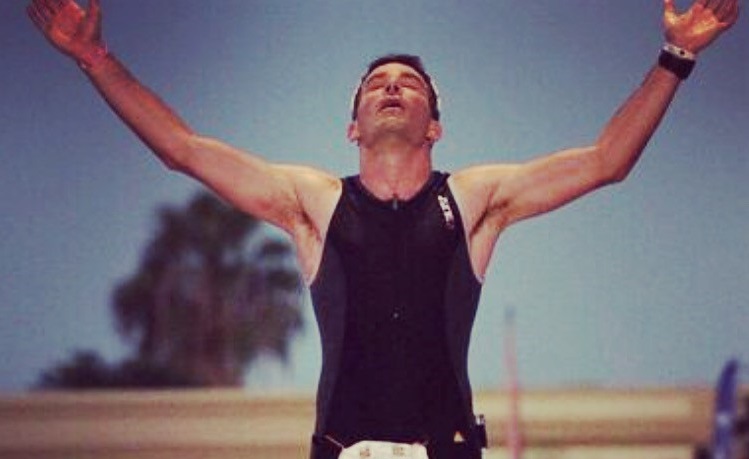So often, the key to kick-starting a healthier lifestyle is finding something that inspires you to make the change. Harvey Mackay, the American businessman and author, famously said:
“A dream is just a dream. A goal is a dream with a plan and a deadline.”
The trouble with applying this to your fitness and a healthy lifestyle is that health is a state of being, it does not happen by a certain date. It is a process of constant improvement that you execute by altering daily habits. The diffuse nature of health is what so many people struggle with: improving your health is so vague a target that it fails to capture the imagination and focus the mind.
So what to do? Every person is different, and what works for one person might completely fail for another. Here are a few tips to try to help you find your inspiration.
1. Start with a tangible dream
If you’ve ever taken a class or read a book on negotiation, one of the first things that you will have probably heard is that when starting to negotiate you should name a price that seems so outlandish it almost makes you laugh out loud.
Start with a dream that, to you, almost makes you spit out your morning cappuccino. Why?
No-one ever got inspired by something that would barely make your eyes rise from your computer screen. Be outrageous. Be innovative. Aspire to do something that your friends and family will gasp at.
It does not mean that more moderate or seemingly unachievable goals are pointless. It is just an observation that life-changing habits rarely seem to develop from modest targets.
What does a big target look like? It might be dropping 4 dress sizes, swimming the channel, running a marathon, climbing Everest or cycling Land’s End to John O’Groats. Indeed, it might even mean a very modest goal by someone else’s standards (running a 10km race, for example, if you could barely run previously). The point is that this is a personal undertaking - it might not be a big deal for someone else, but that makes it no less of a challenge for you.
Dream big. Challenge yourself.
2. Give yourself time
When you set a big target, do not rush. Time is important in achieving anything significant in life: if something can be done quickly then it’s too easy, and if it’s too easy then it’s not going to have the desired effect and motivate you.
When it comes to health and fitness, lifestyle habits take time to embed. This is the crucial reason behind the failure of fad diet followers to sustainably lose weight. Typically, they encourage short term pain to obtain accelerated results. This does nothing to change the long-term lifestyle habits that have resulted in the need for a crash diet, and so in a few months all of the weight lost has frequently been regained.
3. Create a plan
As Mackay says, a dream will stay a dream unless you create a plan. A plan gives you short-term goals and deliverables that help focus the mind. What does this look like?
Let’s say you enter a marathon. That is your dream. However, that dream will be unrealistic unless you set about planning your training. Your training plan then gives you short-term targets that lay the bricks of your road to your dream. It turns something of your wildest imagination into a series of short-term, bite-size and achievable targets.
4. Get buy-in from your family
Most of the time, families couldn’t be more supportive when it comes to making big positive lifestyle changes. However, this does depend very heavily on the type of goal and your particular family.
If you are planning on entering an Ironman triathlon for instance, your family need to know what kind of time commitment you are taking on with your training and be supportive of that. If you are planning on climbing Everest, make sure your spouse and children understand the risks. Should you wish to swim the Channel, be up front about the early morning swims that are necessary.
It is critically important that your ‘team’ are 100% behind you in achieving your goals. If they have doubts or are not as committed to your goals as you, it will make it very tough to last the journey.
5. Get external accountability
For some, this might mean declaring your goal to the world (e.g. Johnny is swimming the channel for Parkinson’s UK), but it doesn’t have to mean that. Some people are very private about their goals and that is perfectly OK.
What it means to be externally accountable is having someone to keep your mind on task and provide the right kind of support that you need along the way. Having external accountability can take many forms. Here are a few examples:
- a coach, if you are training for an event
- a personal trainer or dietician who helps you plan for your goals
- joining a group like Weight Watchers
- a sports club, e.g. a local running club
- a group of friends with similar goals
- regular classes at your local fitness studio
The benefit of this person or group is that they create a social network that offers guidance, support and counselling. They can provide a kick up the butt when you need it, or a supportive shoulder if you’ve had a setback. They can provide reassurance when you have self-doubt and knowledge when you have questions. They get you out of the door at 8am on a Saturday for that long ride when you otherwise would have hit the snooze button.
These people are extremely valuable in your journey and you should select them carefully. You need people around you who push the right buttons, not ones that make your feel bad, inadequate or unsupported. The wrong mentor, coach or group can be devastating and scupper your dreams. Spend some time thinking about what is most important for you and ask your friends if they might know of someone with an appropriate fit.
6. Be flexible – adapt to the challenge
Even the best laid plans can and do go wrong. However, setbacks are so often used as an excuse – injury, sickness, work, stress or whatever. That doesn’t mean you should just tear up your dream.
Flexibility is going to be incredibly important on your journey. There are inevitably days when you lack motivation, when you are sick, your boss gives you a last minute deadline or you have a disturbance at home. However, these are really just all adult versions of “the dog ate my homework, sir”.
The harsh reality is that people who achieve their goals suffer all these setbacks and hiccups too, but they work around them. They adapt. They compromise. They alter plans. They have problems too, but they find solutions.
7. Be a mental tyrannosaurus
Rocky Balboa poignantly said “Every champion was once a contender that refused to give up.” Sure, Rocky is a fictional character, but what he says is the truth. The journey to being the best in the world is one made by a privileged few, but it’s an easy and sloppy mistake to assume that these people got there by pure god given talent.
Anything worth having requires hard work and dedication. It will a tough journey, it will test you, but it will be worth it. Just hang in there and don’t give up.
8. Failure is never fatal – let not fear of failure prevent you from trying
Sometimes, we set a big goal, we give it everything and we fail. To focus on the failure and let it ruin you would be to miss the point of the journey. Indeed, it would miss the point of the failure.
Failure in pursuit of a single dream does not equate with it being wasted effort. Does an Olympic Silver Medallist believe that his or her entire career was worth nought simply because they did not achieve Gold?
Similarly, let’s say your goal was to finish a marathon in under 4 hours and you finish in 4 hrs 01 min. Have you failed to achieve your target? Sure, but it doesn’t mean the journey has not been worth it. It means not that you learned nothing. Remember, it took enormous courage to set a big target and you came a long way even if you missed. Be proud of what you did achieve and use your ‘misses’ as motivation to find your next goal.
9. Don’t stop when you win
With most goals in life, the simple achievement of your target does not mean you should hang up the boots and quit trying. Use the inspiration of your recent success to set your next big goal and continue to shoot for the stars. You’ll never believe what is possible if only you give it a go.
This is particularly true in health and fitness. Fitness is a journey, not a destination. Having dreams and goals is a way to mix up the journey and make it more fun, more personal, more you. Your motivations and capabilities may change over time, but continuing to have goals is a way to keep your health flower appropriately watered.
10. Variety is the spice of life
Keep innovating with your health and fitness goals. Variety adds colour and complexity to your life and will help keep you enthused and energetic. As soon as something becomes a simple matter of process for you, it can lose the interest.
Change up your focus races, holiday to different places, work out in different spaces, try a new sport. Keep moving. It is a dull routine and a lack of an inspirational goal that bores people into failure.







COMMENTS (0)
Be the first to comment!
Please login to comment